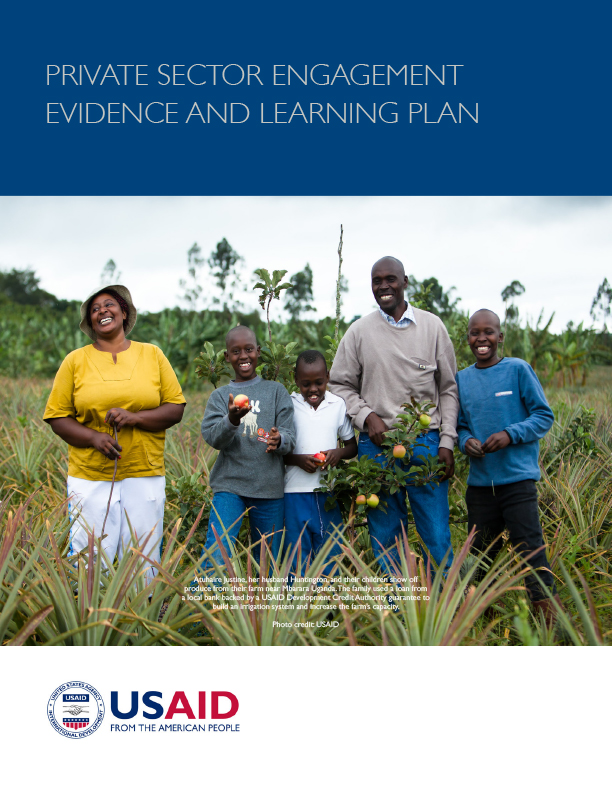- Work With USAID
- How to Work with USAID
- Organizations That Work With USAID
- Find a Funding Opportunity
- Resources for Partners
- Careers
- Get Involved
Speeches Shim
Background
USAID is undertaking a major cultural and operational transformation to expand our engagement with the private sector as a more-sustainable way to support communities in achieving development and humanitarian outcomes at scale. The Private-Sector Engagement (PSE) Policy is an Agency-wide call to action, and a mandate to work hand-in-hand with the private sector to design and deliver programs across all sectors, development and humanitarian, and to harness our resources to open markets and other opportunities for U.S. businesses. This policy signals an intentional shift to pursue market-based approaches and investment as a means to accelerate countries’ progress on the Journey to Self-Reliance. This vision is based on a growing body of evidence about the role of private financial flows and private sector expertise and capabilities in creating and expanding markets in developing countries while also improving the sustainability of development outcomes.
For USAID, PSE is a strategic approach to planning and programming through which USAID consults, strategizes, aligns, collaborates, and implements with the private sector for greater scale, sustainability, and effectiveness of development or humanitarian outcomes. Since the establishment of USAID’s Global Development Alliance (GDA) and Development Credit Authority (DCA) programs more than a decade ago, and with the more recent creation of the Office of Private Capital and Microenterprise (PCM), USAID has been a leader in private sector engagement within the development sector. This wealth of experience informs current USAID practices and processes when engaging the private sector and is the foundation for the PSE Policy. USAID has also supported evaluations and investments in a range of learning activities on the role of the private sector in development. However, despite an existing body of evidence on PSE practices and effects of PSE approaches, critical gaps remain in our understanding of how to most effectively engage with the private sector for sustained results.
Goals and Objectives
This unified Agency-wide PSE Evidence and Learning Plan serves as a guide to set the direction for key activities that will strengthen and improve the use of evidence in decision-making on PSE approaches. The research activities resulting from this plan will contribute to a growing base of knowledge about how to mainstream PSE across all sectors of development.
In the implementation of this plan, we will work collaboratively with external partners (research institutions, think tanks, private companies of all sizes, partner country government agencies, etc.) to strengthen the evidence on effective PSE by both
- Filling critical knowledge gaps and
- Improving the rigor of PSE research and evaluation
Drawing upon USAID and partner experiences and efforts, this plan focuses on understanding how we can be most effective in PSE. USAID will also prioritize sharing knowledge and learning on PSE research and best practices with our partners as a way of deepening our collaboration with the private sector in achieving our development and humanitarian objectives.
Along with research efforts to fill evidence gaps, this plan champions the development of meaningful indicators of PSE, acknowledging that although “dollars leveraged” has long been the primary indicator for successful PSE, it is not the most meaningful indicator for assessing development impact. Through our work, we will seek to identify more meaningful indicators which measure the effectiveness of USAID efforts to engage with the private sector and the development results of specific PSE activities. The aim is to identify a set of indicators that will be relevant to both USAID and private sector partners.


Comment
Make a general inquiry or suggest an improvement.